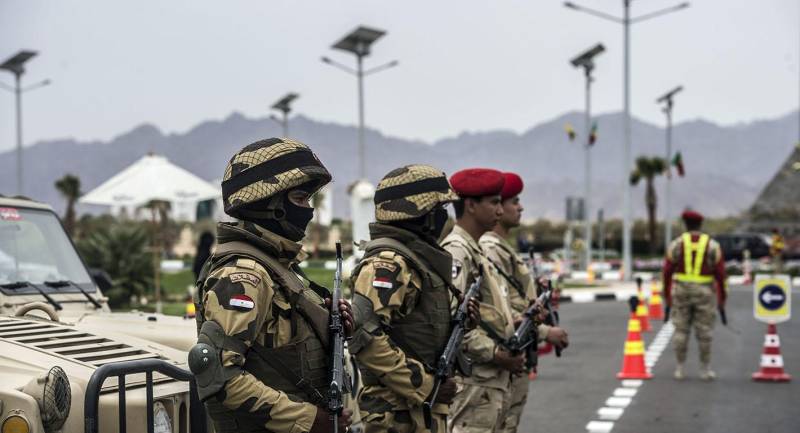
Pakistan is suffering from a case of severe economic mismanagement, leading to a buildup of frustration among its population and resulting in aggression being channeled towards marginalized groups. The recent attacks on the Christian community in Jaranwala highlight the extent of the problem, indicating that the rot runs deeper than most people realize.
The state's support of extremist groups, in order to further personal agendas and deflect attention from critical issues such as the economy, has led to this disaster.
At the heart of this situation lies Pakistan's establishment, which has consolidated its control over the country's affairs in the past year. From the economy to human rights legislation, it is plainly evident that who is running the show.
While some believe that the establishment at the helm will be able to rescue the country from chaos and turn around the economy, there are examples from around the world that prove this notion to be false. One such example is Egypt, a country that has been ruled by a military dictator for almost a decade, who took power promising to revive the economy. However, the outcome has only been more agony for its people.
With Pakistan moving towards a similar model, its institutions should be cognizant of the fact that this is likely to not end well and can further deteriorate the country’s social fabric.
The model
Similar to Pakistan, Egypt has experienced military-sponsored political regimes for the majority of the last 70 years. Authoritarian rule in the African nation has been able to endure through a social contract between the state and certain segments of the population. These segments have accepted economic benefits from the state in exchange for turning a blind eye to the transgression of human rights and personal freedoms.
I empathize with Arif Habib
— Muneeb Sikander (@MuneebASikander) August 15, 2023
Historian @adam_tooze writes leaders of German business were "willing partners in the destruction of political pluralism" in 1930s. In exchange granted near immunity from regulations and wages of workers frozen at a low levelhttps://t.co/Ma1M1dj34M
However, a watershed moment for the country came after the government of Mohamed Morsi was sacked and the Egyptian military took over.
“After becoming president in 2014, Sisi (Egypt’s military ruler) passed a set of controversial laws that effectively turned the judiciary into an instrument of the government. In collaboration with his allies in parliament, Sisi amended the constitution to do away with presidential term limits, allowing him to stay in power until 2030,” reads an article in the Foreign Policy Magazine.
Sisi has also systematically repressed the secular opposition, through co-opting some of their political support and subsuming them inside political organizations controlled by the country’s security agencies. Political activists who tried to operate outside these established boundaries were sent to prison. Despite recent pardons in response to international pressure, many political activists in Egypt remain incarcerated.
In Pakistan's history, there have been numerous instances that stand out, but two recent ones are particularly notable. The first is the rise to power of the Pakistan Tehreek-e-Insaf (PTI) and its subsequent tenure in office, which was characterized by political victimization, suppression of independent media, and an increased role of the military in governance. The second pivotal moment was the violence that erupted on 9th May and the establishment’s response to the events. Subsequently, a series of legislation were passed by the Parliament to strengthen the establishment's grip on the country and curb any form of dissent which could give rise to such an incident again.
In the aftermath of these authoritarian stints, the economy has suffered - similar to what has transpired in Egypt.
“Sisi promised Egyptians prosperity, but Egypt is flat broke. The statistics are staggering. Inflation is running at almost 37 percent and a single U.S. dollar fetches 30 Egyptian pounds. (It was about 7 pounds to the dollar when Sisi came to power.) The country’s international debt is almost $163 billion, and its overall debt is projected to reach nearly 93 percent of the country’s GDP in 2023. Government officials have been forced to manage Egypt’s finances like a shell game, moving money around in a vain attempt to hide the country’s precarious economic conditions,” reads an article in Foreign Policy magazine. All of this sounds eerily like the future that Pakistan is headed towards.

Pakistan's economy is also facing serious challenges, including high inflation and an abysmally low growth rate. In response, the military has taken up the mantle of reviving the economy. The establishment of the Special Investment Facilitation Council (SIFC), a forum jointly operated by civil and military authorities, is designed to attract foreign investment to Pakistan. However, the SIFC is primarily led by the military and focuses on facilitating the sale of state assets to the Gulf states as a means to promote economic growth.
Yet, the military's track record of operating businesses and meddling with economic affairs has not been great. Its business interests in the country are poorly managed, often resulting in significant losses that are eventually subsidized by the state. Additionally, their overarching influence often leads to the crowding out of private sector players in the industry.
Ideally, the country needs to transition to a more democratic setup aimed at reforming the state’s governance structures and overseeing a subsequent revival of the economy. However, as things stand, there is a strong possibility of an extended caretaker setup and the continuation of the hybrid model in the near future.
“But for the Pakistan Army, maintaining its political hegemony is its bottom line. Whereas it had attempted to do so since 2008 through more indirect means, its efforts are now less subtle. In recent days, voices aligned with the Army have trashed the entire political class and called for an “apolitical cabinet for an indefinite period.” In other words, Mr. Kakar and Gen. Munir may be around for a very long time,” writes political analyst Arif Rafiq, in his article for Globely News.

